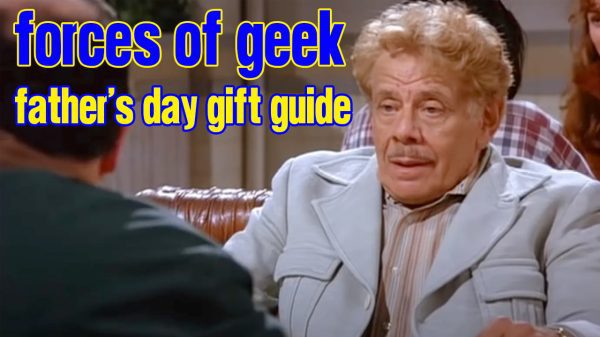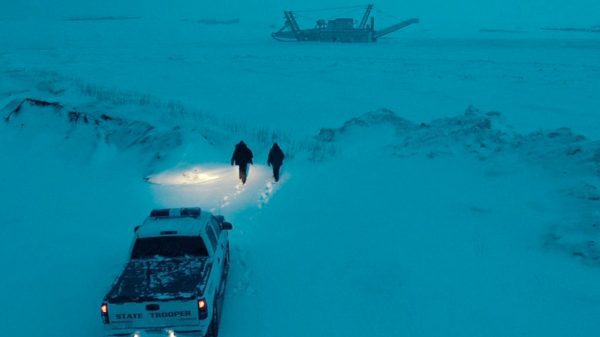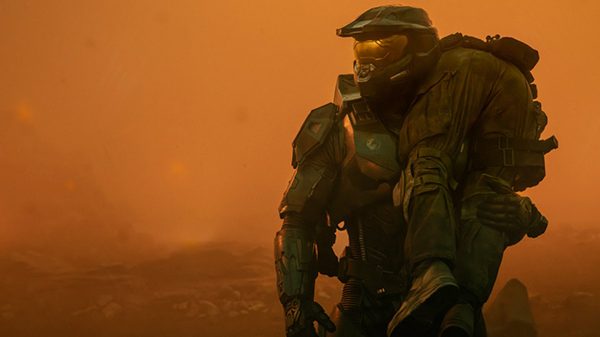
Alex Segura photo by Robert Kidd
Alex Segura is a very busy man. A husband and father he spends his days working as Senior Vice President of Sales and Marketing at Oni Press. I started reading Alex’s work as a writer for the comic book website, Newsarama, and followed his career to his former positions at both DC Comics and Archie Press. Creatively, his passion lies in novels, comic books, short stories, and podcasts. His work in prose has earned him both critical acclaim and has led to the inclusion of his short story, “90 Miles” in The Best American Mystery and Suspense 2021.
Comic readers know him for his creator owned work, The Black Ghost, as well as a number of Archie titles including a number of crossovers with the Riverdale gang meeting such pop culture icons as the B-52s and The Ramones. He is also the co-creator/co-writer of the Lethal Lit crime/YA podcast from iHeart Radio, which was named one of the best podcasts of 2018 by The New York Times.
Alex took some time to discuss his new book Secret Identity, his upcoming projects, and current pop culture favorites.
* * * * *
FOG!: Secret Identity is your sixth novel, following your five Miami PI Peter Fernandez books. What is Secret Identity about and what was the genesis of the novel?
Alex Segura: Believe it or not, it’s my seventh! I did five Pete Fernandez Miami Mysteries, plus the Star Wars: Poe Dameron – Free Fall book. Time flies!
My two passions have always been comic books and noir/crime stories. As a kid in college, I was blown away by Michael Chabon’s The Amazing Adventures of Kavalier and Clay, which seemed to blend my two loves into something wholly new. I remember reading those books and wanting to immediately immerse myself in the comics themselves – the stories the protagonists were creating. I made a note that one day, it might be fun to write a comic book novel with actual comics in it. Fast forward to a few years ago, and I was finishing up my Pete Fernandez series and wondering what to do next. I was reading a lot of histories of comics – big picture views of the industry and the people in it – and it felt like 1975 would be not only a great setting for a comic book novel, but for a New York novel. Then Carmen kind of appeared in my mind, as did the title – and I knew there was something there. Years ago, I’d toyed with the idea of a comic book character named The Lynx, and it all blended together into what would become Secret Identity.
The novel is set in 1975. Was there a reason why that year was ideal to set the story?
It’s a very interesting time – not only for comics, but for New York and our country. Today, we kind of take the prevalence of comic book stories in other media for granted. We have a Peacemaker TV show, Ant-Man movie, and so on. When I was a kid, it felt like a huge win to get a Batman or Superman film. Now, it’s not a question of if, but how many and when.
But in 1975, the industry was in a bit of a tailspin. The comic book newsstand market was failing. We were still a bit away from the rise of comic shops, and many in the industry had this sense that there was no permanence to working in comics – it was something you did until you got a better gig. Unless you had a passion for the material – you were a fan that just loved comics.
So I thought it would be interesting to drop Carmen in this time period and see how she’d fit in, and how she’d push back against some of the structural problems that were a big part of comics back then. I also wanted to write a New York novel – but not today’s New York. I wanted to explore the dark, gritty, and dangerous NYC of another time, when it wasn’t exactly safe to walk the streets, but boy was it exciting.
You’ve worked in both comics journalism and within the industry for such companies as DC Comics, Archie Comics, and Oni Press. What kind of research did you do you for regarding the industry almost 50 years ago?
A lot, actually! This was my most journalistic novel. With the Pete books, a lot of it was ingrained in me – I grew up in Miami, was Cuban-American, etc. I did some research when it came to topics I wanted to write about, but a lot of it came naturally.
For Secret Identity, while I knew and loved comics and had a great sense of the history, I really wanted to achieve a sense of verisimilitude that I felt was important, and was also a big reason people loved Kavalier and Clay – I wanted it to feel like, if you squint slightly, you could believe it happened you know? So that required not only reading a ton of books and interviews involving people that worked in the industry at the time, but also talking to creators that were there. Many friends and industry stalwarts were giving with their time, whether it was for interviews or reading early versions of the manuscript to make sure the details were right and genuine. I know I can craft a compelling mystery, but I also wanted the world to feel genuine, so when readers become immersed in it, they feel like they’re experiencing a new world. For me, that’s the wonder of reading – you get pulled into worlds and meet people you never would experience.
The lead character is Carmen Valdez, a queer woman who moved to New York City from Miami to fulfill her childhood dream of working in the comics industry. Was this inspired by anyone in particular?
Not one person, no. Carmen is in many ways the polar opposite of someone like Pete. She’s organized, she’s driven, she’s sharp and focused on achieving her dream of working in comics. When a path to writing a hero is presented to her that – while loaded with red flags – gives her the chance to reach her goal, she takes it. Usually, when I create characters, they’re amalgamations of people I know, people I’ve read about, or people I’m interested in writing about – so Carmen was a mixture of all those things, which always makes for something interesting and new.
I found it interesting that some characters seem to be inspired by real life industry persons. Doug Detmer seems inspired by Wallace Wood (although Wood was mentioned). Was there a reason that you went with creating avatars?
I wanted the characters in Secret Identity to fit into existing comic book history, not replace or tinker with it. So I wanted people that felt like they could’ve existed at that time and worked in comics. Detmer has traits that we see in many real-life comic book creators of the time, but he isn’t a one-for-one version, like Carmen – he’s his own person. I drew inspiration from a lot of actual, historical figures, but I really wanted the characters to stand on their own.
I also want to give a big shout out to Sandy Jarrell, who illustrated the comic book sequences in the novel and did an awe-inspiring job of evoking the comics from that period, in tandem with letterer Taylor Esposito. He was a magnificent partner in creating those pages and I’m just so blessed to have worked with him. Sandy is one of the most underrated artists in comics and a joy to work with.






What do you have coming up?
I’ve got a few big announcements coming soon, which I’m very excited about. I’m writing my next crime novel, which I’m excited to discuss more when the time is right. We’re also putting the finishing touches on The Mysterious Micro-Face comic with NPR’s Planet Money blog, drawn by Jamal Igle. I’ll also be launching The Awakening, my super hero noir comic with Michael Moreci and Dean Kotz, via Zestworld soon. The Dusk Kickstarter should also be finished up in a few months. It’s gonna be a busy year!
What are you currently geeking out over?
So much stuff!
Novels: Like A Sister by Kellye Garrett, Paradox Hotel by Rob Hart, Kismet by Amina Akhtar, Don’t Know Tough by Eli Cranor, Under Lock and Skeleton Key by Gigi Pandian, Homicide and Halo-Halo by Mia P. Manansala, Cold by Mariko Tamaki
TV: Not a lot, I don’t watch a ton of TV – but I did catch up on Hawkeye and WandaVision recently and loved them both!
Movies: Caught Nightmare Alley (directed by Guillermo del Toro, co-written by GDT and Kim Morgan) a few weeks ago and absolutely loved it.
Podcasts: Hemingway’s Picasso, a fantastic crime podcast that blends some of my favorite things – noir, Miami, sports, and more. Hosted by my dear friend Leah Carroll.
Comics: So many! The Good Asian, Made in Korea, Human Target, Devil’s Reign, Saga (of course), Black Widow, Night of the Ghoul, all the Black Hammer stuff, Newburn, Reckless, Meteor Men…the list goes on!
For more details about Alex and Secret Identity, visit AlexSegura.com













































































































You must be logged in to post a comment Login